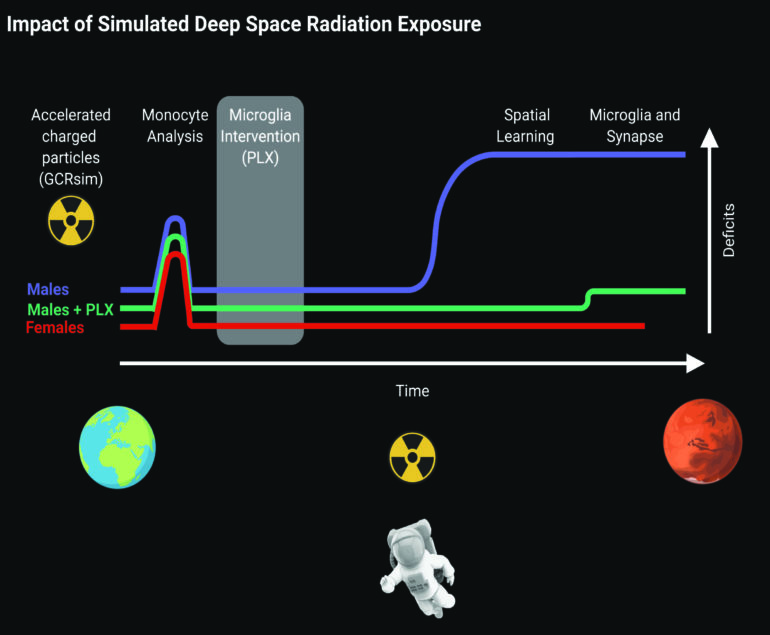A team of researchers working at multiple facilities in the San Francisco area has found that male mice exposed to radiation similar to that encountered by humans on long space missions experienced problems with spatial learning several months later. In their paper published in the journal Science Advances, the group describes their simulations, how it impacted the mice and the way they found to prevent adverse effects from happening.
If humans are to colonize the moon or travel to Mars, scientists are going to have to find a way to protect them from galactic cosmic radiation (GCR). Some research has shown that it can have a negative impact on the central nervous system. In this new effort, the researchers exposed lab mice to conditions similar to those encountered by astronauts in deep space and then tested them over time to find out what the radiation might have done to their brains. In one of the tests, the researchers taught the mice to find a platform hidden under opaque water using instructions given by the researchers prior to GCR exposure and then tested them later on how well they did with it. The test is a standard means of testing changes to spatial learning over time.
The results showed that the male mice made more mistakes than the control mice after their exposure but the female mice did not. More testing showed that the impairment was likely due to activation of the immune system in the brain. In other tests, the researchers did not find any evidence of an increase in anxiety, problems with recognition memory or social ability. But they did find that if they fed the mice a diet of food designed to deplete microglia (immune cells in the brain) prior to their exposure to GCR, they did not experience any spatial learning impairment. And they also found a biomarker associated with the mice that were more likely to be negatively impacted by such exposure—one that could one day be used to determine which astronauts might be more or less susceptible to problems associated with GCR exposure.
How deep space travel could affect the brain
More information:
Karen Krukowski et al, The impact of deep space radiation on cognitive performance: From biological sex to biomarkers to countermeasures, Science Advances (2021). DOI: 10.1126/sciadv.abg6702
2021 Science X Network
Citation:
Male mice exposed to simulated deep space radiation experienced impaired spatial learning (2021, October 22)
retrieved 24 October 2021
from https://phys.org/news/2021-10-male-mice-exposed-simulated-deep.html
This document is subject to copyright. Apart from any fair dealing for the purpose of private study or research, no
part may be reproduced without the written permission. The content is provided for information purposes only.
